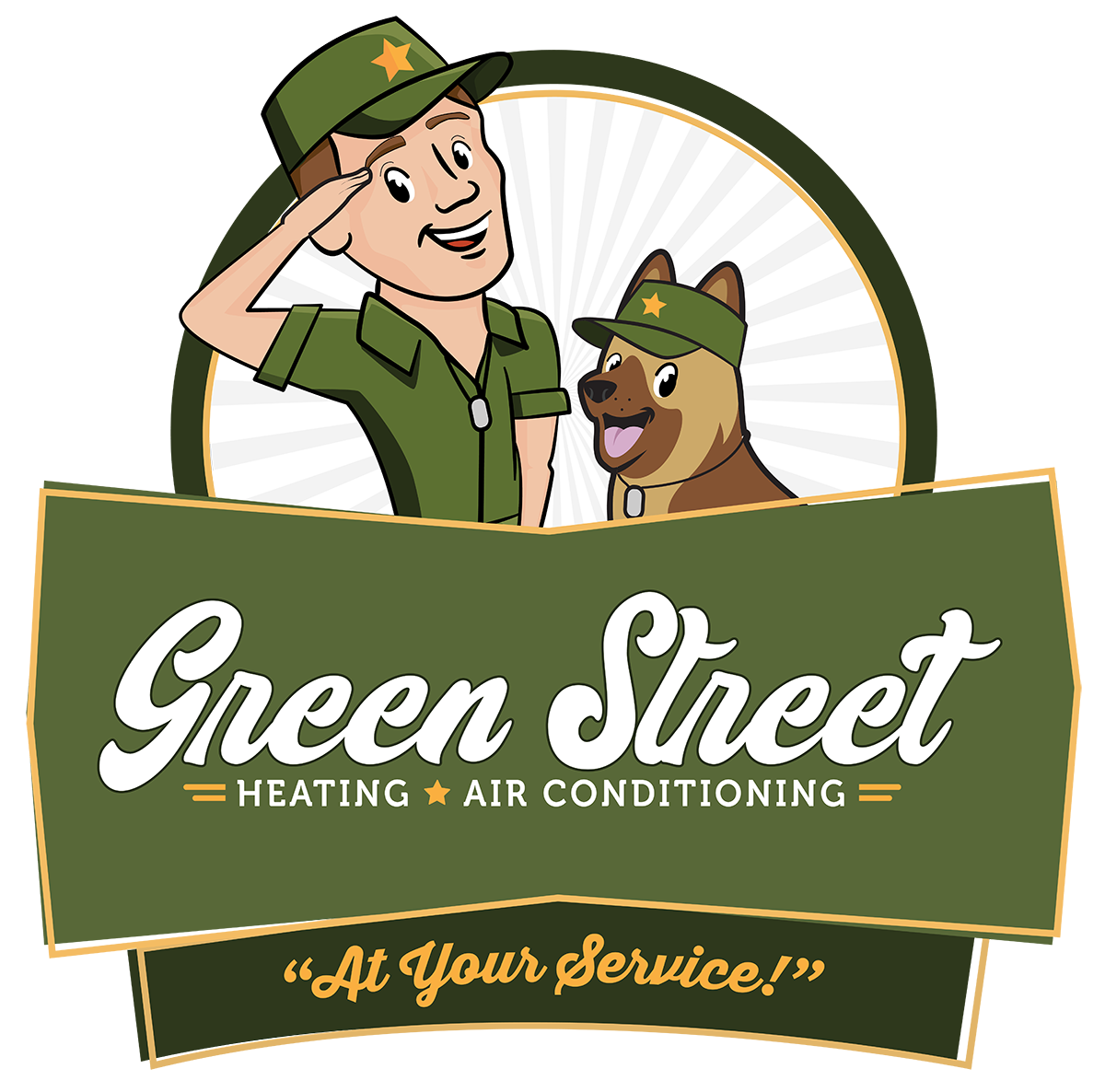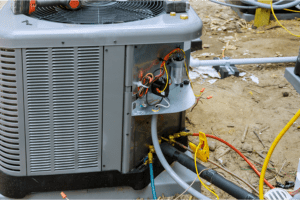If you’re living in a region like Tennessee, you already know how unpredictable the weather can be. One day it’s blazing hot, the next it’s jacket weather, and homeowners are constantly adjusting their thermostats to stay comfortable. That’s why choosing the right HVAC system is so important—because comfort shouldn’t depend on the whim of the weather. If you’re in the market for an upgrade or building a new home, one question you might be asking is: why are heat pumps more efficient than air conditioners? Let’s break it down in plain English.
Understanding the Basics: Heat Pumps vs. Air Conditioners
Before we talk about efficiency, it helps to understand how these systems actually work.
Air Conditioners
Air conditioners are designed for one job: cooling your home. They do this by pulling warm air from inside your house, removing the heat using refrigerant, and pushing the cooled air back into your living space. The heat they extract is released outdoors, usually via a compressor unit sitting in your backyard or side yard.
This system is great during muggy summer months—but what about when winter rolls around?
Heat Pumps
This is where heat pumps come in. A heat pump works much like an air conditioner when it’s in cooling mode, using the same basic process to remove heat from your home. But here’s the magic: when it gets cold outside, the system can reverse the flow of refrigerant and pull heat into your home from the outdoor air.
Yes, even in winter air that feels chilly to us, there’s still some heat energy for the system to capture and deliver indoors. This dual functionality—cooling in the summer and heating in the winter—makes heat pumps a flexible and efficient solution for year-round comfort.
Why Are Heat Pumps More Efficient?
Let’s get into the heart of the matter. What makes heat pumps more efficient than air conditioners?
1. One System for Two Jobs
The first and most obvious advantage: a heat pump can handle both heating and cooling. That means you don’t need two separate systems (an AC and a furnace). Fewer systems = less maintenance, lower upfront cost over time, and reduced energy use throughout the year.
In places like Tennessee where winters are generally mild (though not without the occasional freeze), a heat pump alone can keep your home comfortable all year. For colder climates, some homeowners pair a heat pump with a backup furnace in what’s called a dual-fuel system—but in regions like Tennessee, many homes get by just fine with a standalone unit.
2. Efficiency by Design
Heat pumps don’t create heat; they move it. That’s a big difference.
Think about it this way: traditional electric furnaces or baseboard heaters burn electricity to generate warmth, which can be expensive and inefficient. Heat pumps, on the other hand, simply relocate heat from one place to another, using far less electricity in the process.
According to the U.S. Department of Energy, heat pumps can cut electricity use for heating by up to 50% compared to electric resistance heating systems. Over time, that can mean serious savings on your energy bills.
3. Better Humidity Control
Tennessee summers are humid. Anyone who’s stepped outside in July knows that sticky, muggy feeling.
Heat pumps have a longer cooling cycle than standard air conditioners, which means they do a better job of pulling moisture from the air. That translates to better dehumidification, a more comfortable indoor environment, and reduced risk of mold and mildew.
Plus, lower humidity levels can allow you to set your thermostat a couple degrees higher in the summer—saving even more energy without sacrificing comfort.
4. Steady Performance in Varying Temperatures
Older air conditioning systems tend to work harder as outdoor temperatures rise. Efficiency starts to drop, and energy use goes up, increasing your home’s cooling costs.
Heat pumps, especially modern variable-speed models, maintain consistent efficiency regardless of the temperature differential between indoors and outdoors. Some high-efficiency models (called “cold climate heat pumps”) can even operate effectively when temperatures drop into the 20s or below, though Tennessee’s relatively mild winters don’t often require that level of performance.
Types of Heat Pumps
Not all heat pumps are created equal. Here are the two main types you’ll see on the market:
1. Air Source Heat Pumps
These are the most common. They pull heat from the outside air and move it indoors (or vice versa, depending on the season). They’re ideal for moderate climates—like most of Tennessee—and are relatively affordable to install.
In recent years, technological improvements have made air source heat pumps more effective even in sub-freezing temperatures. Brands like Carrier, Trane, and Lennox all offer high-efficiency options suitable for homes across the state.
2. Ground Source (Geothermal) Heat Pumps
Instead of pulling heat from the air, these systems tap into the consistent underground temperatures below your home. Because the ground stays at a relatively constant temperature year-round, geothermal systems are incredibly efficient—but also costly to install. They require trenching or drilling to bury underground piping, making them more suitable for new construction or major renovations.
Still, if you plan to stay in your home long-term and want the most efficient system available, geothermal heat pumps are worth considering.
Thinking about getting a new unit? Read our blog to get an idea about how much a new unit costs.
Upfront Costs
Let’s talk dollars and cents.
Yes, the upfront cost of a heat pump system is typically higher than a traditional air conditioner. But that cost is offset when you factor in that it also replaces your furnace. You’re investing in one system that does the job of two.
Also, don’t forget about the incentives. There are federal tax credits and local utility rebates available for installing high-efficiency heat pumps. Through the Inflation Reduction Act and other programs, homeowners may be eligible for up to $2,000 in federal tax credits for qualifying heat pump installations.
Maintenance and Longevity
Like all HVAC systems, heat pumps require regular maintenance: filter changes, coil cleaning, refrigerant checks, etc. Scheduling annual service with a licensed HVAC professional is essential for keeping your system running efficiently.
With proper care, most heat pumps last between 12 to 15 years, with some high-end models reaching the 20-year mark. Choosing a reputable brand and installer will go a long way in determining the system’s reliability and lifespan.
Final Thoughts: Is a Heat Pump Right for You?
If you’re living in Tennessee and you’re looking for an energy-efficient, all-in-one system to keep your home comfortable year-round, a heat pump could be the smart choice.
It cools in the summer, warms in the winter, saves you money on energy bills, and improves indoor comfort—all while reducing your carbon footprint. While the initial investment may be a bit higher than a standard air conditioner, the long-term benefits more than make up for it.
Still not sure? Talk to a licensed HVAC contractor in your area. They can assess your home’s layout, insulation, and current system to help you determine whether a heat pump is right for your specific needs.
Green Street HVAC: Reliable HVAC Maintenance in Tennessee
If you want reliable HVAC maintenance in Springfield, Ashland City, Nashville, and other areas in Tennessee, Green Street HVAC is here to help. We are a trusted name in Springfield, Tennessee with decades of experience in HVAC systems.
Our certified team is just a call away if you need professional Aeroseal duct sealing, full HVAC system maintenance, ductwork inspection, or furnace repair.
Contact Green Street HVAC at (615) 788-4329 to schedule your service or get a free quote online!





